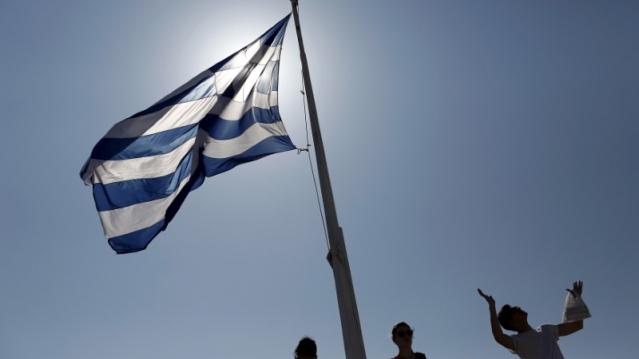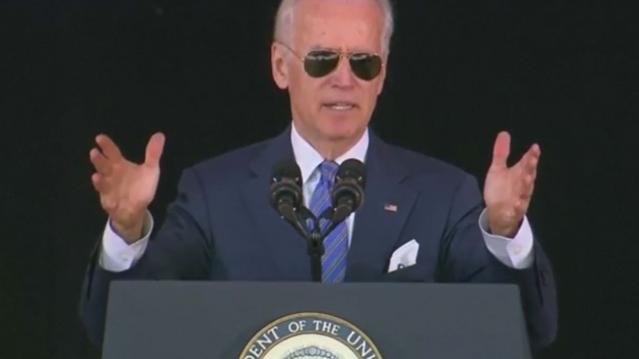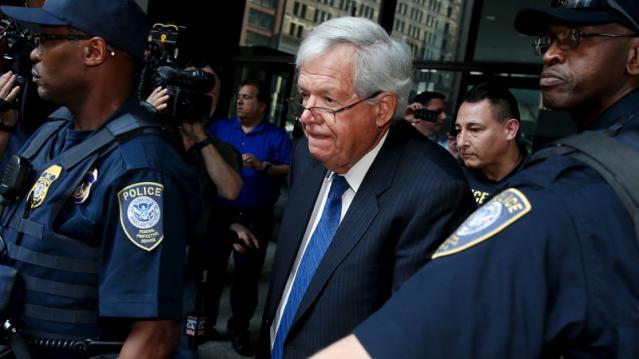Obama Faces Widespread Public Distrust on Iran Deal
President Obama will try to drum up support for the U.S.-Iran nuclear deal Wednesday afternoon at a news conference. But with widespread public disdain and distrust of Iran, Obama may have trouble convincing Americans of the wisdom of dealing with a long-time arch enemy in the Middle East.
The U.S. and Iran on Tuesday announced an agreement that would potentially block Iran’s development of a nuclear weapon for at least a decade while lifting international economic sanctions against Tehran. However, a new AP-GfK poll that was conducted just ahead of the announcement found that Americans only narrowly back diplomatic relations with the hardline Islamic government, and many want to see the sanctions kept in place.
Related: The 8 Most Important Things to Know About the Iran Nuclear Deal
Just 51 percent of those interviewed said the U.S. should have diplomatic relations with Iran while 45 percent said it shouldn’t. At the same time, 77 percent of those interviewed said the harsh U.S. and international economic sanctions against Iran should be preserved at current levels or even increased.
Only 12 percent of those interviewed thought sanctions should be decreased and seven percent said they should be eliminated altogether.
The public’s wariness and distrust of dating back to the 1979 Iranian revolution and U.S. hostage crisis matches the reception the nuclear agreement has received on Capitol Hill where most Republicans and some Democrats say they fear Obama has conceded too much to a country that has fomented terrorist activities throughout the Middle East and has repeatedly vowed to destroy Israel.
Fifty-six percent of Americans consider Iran to be an enemy, according to the poll conducted last Thursday through Monday, while an additional 31 percent consider Iran to be unfriendly but not an enemy. More than 70 percent of Republicans, half of all independents and 45 percent of Democrats described Iran as the enemy.
Related: Clinton Cautious in Her Praise of a Nuclear Deal She Helped to Orchestrate
Before the agreement was announced, six in ten Americans said they disapproved of Obama's handling of the U.S. relationship with Iran, while just over a third approved.
Obama is likely to prevail in pushing the nuclear non-proliferation agreement through Congress over the next two months, despite near-unanimous opposition from Senate Majority Leader Mitch McConnell, House Speaker John Boehner and other leaders and rank and file Republicans. Still, he will need to hold in place at least 34 of the 46 Democrats in the Senate to create a veto-proof firewall in the event Republicans push through a resolution of disapproval of the nuclear deal.
That means that Obama cannot afford any more than 12 Democratic defections to keep the agreement alive. Yesterday, Obama and Vice President Joe Biden began working the phones to shore up support on Capitol Hill, and the president will continue that effort during this afternoon’s White House press conference.
During an interview yesterday with Tom Friedman of The New York Times, Obama stressed that the deal prevented a pathway for Iran to develop a nuclear weapon while making it clear he shared Americans’ distrust of the Iranian government and had limited expectations of improved relations down the road.
Related: Iran Agrees to Limit Nuclear Weapon in Historic Deal
When announcing the deal yesterday, Obama said, “This deal is not built on trust -- it's built on verification…. We will, for the first time, be in a position to verify that Iran is meeting all of these commitments. International nuclear inspectors will have access to Iran's nuclear program -- where necessary, when necessary. This is the most comprehensive and intrusive verification regime that we have ever negotiated. If Iran tries to divert raw materials to covert facilities, inspectors will be able to access any suspicious locations.”
Medical ID Theft is a Way Bigger Problem Than You Think

Forget Target and Home Depot. You may be risking identity theft every time you visit the doctor’s office.
Medical ID theft, in which thieves steal your Social Security number and health insurance info in order to fraudulently obtain medical services or treatment, is skyrocketing.
More than 90 percent of healthcare organizations have had a data breach, and 40 percent had more than five data breaches in the past two years, according to a report released last month by ID Experts. Attacks by criminal organizations are up 125 percent over the past five years. Medical identities are worth far more on the black market than financial identities.
The study estimates that data breaches may have cost the industry $6 billion in the last two years. The scariest stat for consumers: Half of organizations surveyed have little or no confidence in their ability to detect all patient data loss or theft.
Related: Now You Could Lost Your Medical Identity, Too
Victims of medical ID theft spend thousands to restore their credit and correct inaccuracies in their medical records, and unlike banks and credit card issuers, most healthcare organizations offer no protection services for victims.
In addition to the financial toll, there are health risks to victims of medical ID theft. If someone steals your identity and receives treatment that gets added to your medical records, doctors may have incorrect information regarding your health history and allergies.
It’s difficult to prevent medical ID theft, but monitoring your credit and closely reading your healthcare bill and explanation of benefits notices can help you catch it early.
Can a Few Chocolate Euros Stop a Grexit?

German Finance Minister Wolfgang Schaeuble has clashed repeatedly with Yanis Varoufakis over Greece's debt and economic reforms since the leftist Syriza party took power in January, pledging to end austerity and renegotiate the bailout terms.
In an interview with the children's television program "Logo" on German broadcaster ZDF last week, a girl reporter gave Schaeuble a supportive handful of the chocolate coins.
"I'll take a few for my Greek colleague, he also needs strong nerves," Schaeuble replied.
Greece hopes to secure a cash-for-reforms deal with its lenders this week. But after four months of tortuous negotiations no breakthrough is in sight. Without a deal Athens risks default or bankruptcy in weeks.
A Made-Up Holiday That Could Help Your Kids Go to College

Marketers are great at making up holidays—and who doesn’t love having an excuse to eat donuts on National Donut Day or pizza on National Pizza Day?
Most of these special days, however, tend to take a toll on both our wallets and our waistlines. Today may be an exception: The personal finance and college saving industries have dubbed today 529 Day (Get it? 5/29), a day to celebrate saving for college via tax-favored 529 plans.
Americans could benefit from any impetus to save more for higher education. The average American family that’s saving for college put away about $2,600 last year and has a total of just over $10,000 socked away for education, according to Sallie Mae’s annual How America Saves for College report. That’s the lowest amount since the survey began in 2009 — or about enough to send one kid to college for one semester at today’s prices.
Related: Top-rated 529 Plans Probably Are Not For You
Many states are “celebrating” the day with everything from waived enrollment fees to discounted admission to local baseball games. (Each plan is sponsored by a state but run by financial firms.) Check out this interactive map to find out if your state is offering any incentives today.
Contributions to a 529 plan are made after federal taxes, but the money grows tax-free as long as the proceeds are used for education costs. Some states also offer tax breaks on contributions.
The average cost of attending public college this year is $19,000. For private college it’s $33,000, according to The College Board. So there’s no time like today to start saving.
The 5 Funniest 2015 Commencement Speakers

At commencement ceremonies, every speaker gets to be a comedian, even comedians. The competition was tough, but at least two of the best lines compiled by The Washington Post, came from politicians.
“I stand here humbled, gracious and completely naked under this robe.”
--Maya Rudolph, Tulane University
“The UVA community has some experience with being defined by outsiders. It has been said that a rolling stone gathers no moss. I would add that sometimes a rolling stone also gathers no verifiable facts or even the tiniest morsels of journalistic integrity.”
--Ed Helms, University of Virginia
“Tisch graduates, you made it. And you’re f----ed. The graduates from the College of Nursing, they all have jobs. The graduates from the College of Dentistry, fully employed. The Leonard N. Stern School of Business graduates, they’re covered. The School of Medicine graduates, each one will get a job. The proud graduates of the NYU School of Law, they’re covered. And if they’re not, who cares? They’re lawyers.”
--Robert DeNiro, Tisch School of the Arts, New York University
…[Yale was] one touchdown away from beating Harvard this year for the first time since 2006. So close to something you’ve wanted for eight years. I can only imagine how you feel. I can only imagine.”
--Vice President Joe Biden, Yale University
Those of you who are graduating this afternoon with high honors, awards and distinction, I say, ‘Well done.’ And as I like to tell the C students, ‘You, too, can be president.’”
--former President George W. Bush, Southern Methodist University
Denny Hastert: Uh, About That $500,000 Statue…

Illinois state lawmakers are hitting the breaks on a proposal to spend half a million dollars for a statue honoring former U.S. House Speaker Dennis Hastert after the Justice Department indicted the Illinois Republican on multiple charges Thursday.
About a month before the DOJ announced the indictment against Hastert,
Illinois House Speaker Michael Madigan introduced a bill to allocate $500,000 from the Illinois Development Fund for a statue of Hastert, who represented Illinois’ 14th Congressional for 20 years after serving as a state representative.
Related: Lying, Cheating, Stealing: How Corrupt is America?
However, Madigan’s spokesperson, Steve Brown, said Hastert contacted lawmakers asked that they defer the proposal because of the state’s financial condition. Illinois currently is running a $9 billion deficit. Still, the bill, which passed through a house committee, was placed on the calendar for a third reading on May 18.
In the indictment released Thursday evening, federal investigators allege that Hastert paid $3.5 million in hush money to “cover up misconduct.” The money allegedly went to someone in Yorkville, Ill., where he previously coached high school wrestling. The seven-page indictment also accused him of lying to the FBI.
Following the announcement, Hastert reportedly resigned from his current position at Washington, D.C., law firm Dickstein Shapiro, as well as a board member at CME Group, according to Reuters.
